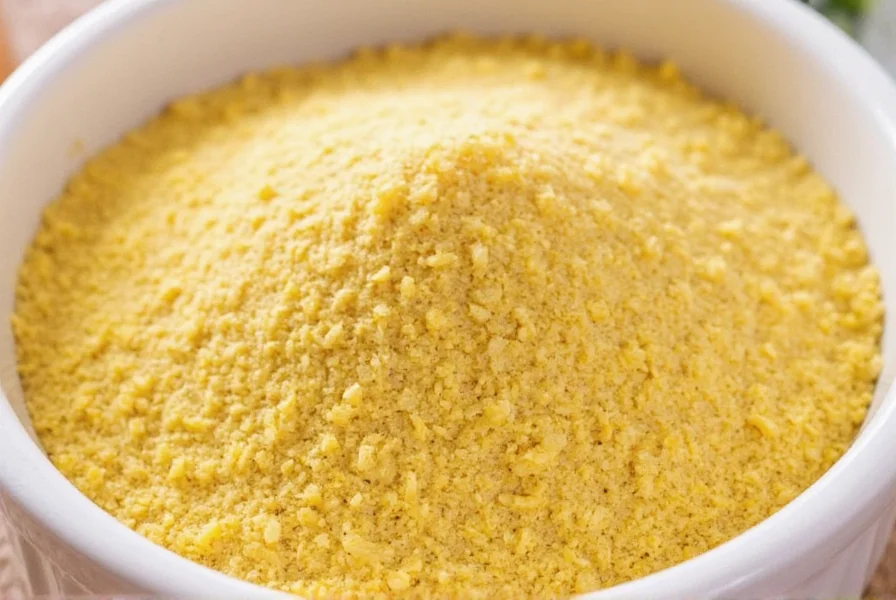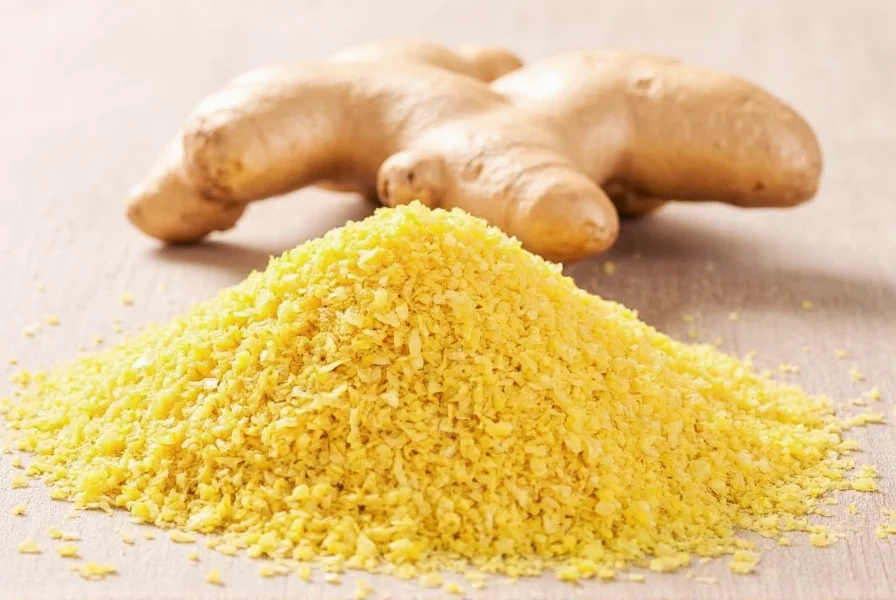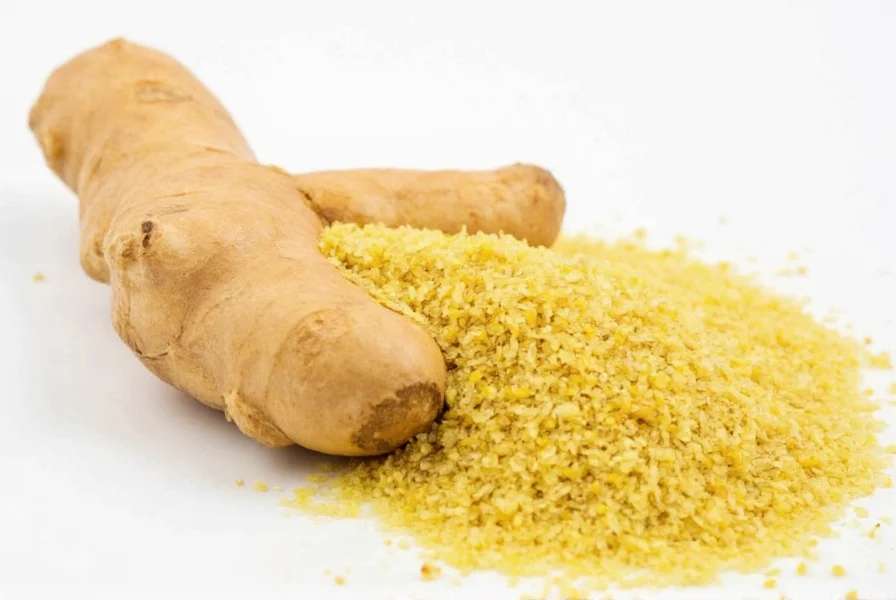What Exactly Is Granulated Ginger?
Granulated ginger represents a middle ground between fresh ginger root and ground ginger powder. The production process involves peeling, slicing, and dehydrating fresh ginger rhizomes, then grinding them to a specific particle size that's larger than standard ginger powder but smaller than crystallized ginger pieces.
This careful processing preserves more of ginger's volatile compounds than standard ground ginger, which undergoes finer milling that exposes more surface area to oxidation. The result is a product with more pronounced flavor and aroma than regular ginger powder, yet more convenient than grating fresh ginger.
How Granulated Ginger Differs From Other Ginger Forms
Understanding the distinctions between ginger products prevents recipe failures and ensures optimal flavor in your dishes. The particle size and moisture content dramatically affect how ginger behaves in cooking.
| Ginger Form | Texture | Flavor Intensity | Best Uses | Shelf Life |
|---|---|---|---|---|
| Fresh ginger root | Fibrous, moist | Bright, sharp, complex | Stir-fries, fresh sauces, teas | 2-3 weeks refrigerated |
| Granulated ginger | Coarse, dry particles | Moderate heat, balanced flavor | Baking, marinades, dry rubs | 18-24 months sealed |
| Ground ginger powder | Fine powder | Milder, more earthy | Dry spice blends, some baked goods | 12-18 months sealed |
| Candied/crystallized ginger | Chewy, sugary | Sweet with ginger kick | Desserts, confections, snacking | 6-12 months |
Nutritional Benefits and Bioactive Compounds
Granulated ginger retains significant amounts of gingerol, the primary bioactive compound responsible for ginger's health benefits. While fresh ginger contains higher levels of gingerol, the dehydration process concentrates certain compounds while preserving others.
Research shows that properly processed granulated ginger maintains approximately 70-80% of the gingerol content found in fresh ginger. The drying process also creates shogaols, compounds with potentially enhanced bioavailability that may offer additional health benefits related to inflammation reduction.
When evaluating granulated ginger nutritional value, note that one teaspoon typically contains:
- 5 calories
- 1 gram of carbohydrates
- Trace amounts of potassium and magnesium
- Significant antioxidant compounds
Practical Culinary Applications
Understanding how to use granulated ginger in recipes prevents common mistakes. The coarser texture means it dissolves more slowly than ground ginger, making it ideal for applications where you want gradual flavor release.
For baking with granulated ginger, use it in spice cakes, gingerbread, and cookies where its slower dissolution creates more complex flavor development during baking. Unlike ground ginger which can sometimes create bitter notes when overused, granulated ginger's more controlled release often produces more balanced results.
In savory applications, granulated ginger for marinades works exceptionally well as the particles adhere to meat surfaces and slowly infuse flavor without becoming bitter. It's particularly effective in dry rubs for grilled meats and in spice blends for roasted vegetables.

Storage Recommendations for Maximum Freshness
Proper storage significantly extends the shelf life of granulated ginger. Unlike fresh ginger which requires refrigeration, granulated ginger needs only a cool, dark place when unopened. Once opened, transfer it to an airtight container to prevent moisture absorption.
The biggest enemy of preserving granulated ginger quality is humidity. In humid climates, consider storing it with a silica gel packet to absorb excess moisture. For longest shelf life, keep it away from heat sources like stoves or direct sunlight which can degrade the volatile compounds responsible for ginger's characteristic flavor.
Substitution Guidelines for Recipe Success
Knowing granulated ginger to fresh ginger conversion ratios prevents recipe disasters. As a general rule:
- 1 tablespoon fresh grated ginger = 1 teaspoon granulated ginger
- 1 teaspoon granulated ginger = ¾ teaspoon ground ginger
When substituting granulated ginger for fresh in making ginger tea with granulated ginger, use half the amount you would of fresh ginger, as the dehydration concentrates the flavor compounds. For best results, add it early in the brewing process to allow sufficient time for full flavor extraction.
Understanding granulated ginger vs ground ginger differences is crucial for substitution success. Granulated ginger provides more controlled flavor release, while ground ginger delivers more immediate but potentially harsher heat.

Common Questions About Granulated Ginger
Can I use granulated ginger instead of fresh ginger in stir-fries?
Yes, but with adjustments. Use one-third the amount of granulated ginger compared to fresh, and add it earlier in the cooking process since it needs time to hydrate and release flavor. For best results in stir-fries, combine with a small amount of water or broth to help it dissolve properly.
Does granulated ginger have the same health benefits as fresh ginger?
Granulated ginger retains most bioactive compounds but in different proportions. The dehydration process converts some gingerol to shogaol, which may have enhanced anti-inflammatory properties. While fresh ginger contains higher initial gingerol levels, properly processed granulated ginger maintains significant health benefits with greater convenience and longer shelf life.
Why does my granulated ginger taste bitter in baked goods?
Bitterness typically occurs when using too much granulated ginger or substituting it directly for ground ginger without adjusting quantities. Granulated ginger has more concentrated flavor than ground ginger powder. For baking, use 25% less granulated ginger than a recipe calling for ground ginger, and ensure even distribution throughout dry ingredients to prevent concentrated bitter spots.
How can I tell if my granulated ginger has gone bad?
Signs of spoiled granulated ginger include clumping from moisture absorption, loss of characteristic aroma, or development of musty odors. Properly stored, it should maintain a vibrant golden color and strong ginger scent. If it smells flat or musty, or shows any signs of mold (rare but possible in humid conditions), it's time to replace it.











 浙公网安备
33010002000092号
浙公网安备
33010002000092号 浙B2-20120091-4
浙B2-20120091-4